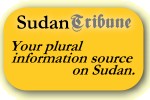US draft resolution calls for more monitors in Darfur, threaten Sudan’s oil
By EDITH M. LEDERER, Associted Press Writer
UNITED NATIONS, Sep 08, 2004 (AP) — The United States circulated a draft U.N. resolution on Wednesday that would back a beefed-up monitoring force for Sudan’s conflict-wracked Darfur region and threaten punitive action against the country’s oil exports if the government doesn’t act quickly to stop militia attacks and improve security.
 The draft Security Council resolution, obtained by The Associated Press, says the Sudanese government “has failed fully to comply with its commitments” to the United Nations to rein in Arab militias accused of attacking, raping and killing villagers in western Darfur and to provide security for moer than 1.2 million people who fled their homes.
The draft Security Council resolution, obtained by The Associated Press, says the Sudanese government “has failed fully to comply with its commitments” to the United Nations to rein in Arab militias accused of attacking, raping and killing villagers in western Darfur and to provide security for moer than 1.2 million people who fled their homes.
It would demand that the government stop all military flights over Darfur, as called for in the April cease-fire. It also would ask Secretary-General Kofi Annan to establish an international commission of inquiry to immediately investigate human rights abuses in Darfur.
“The situation in Sudan constitutes a threat to international peace and security and to stability in the region,” the draft states.
The draft does not refer to “sanctions,” a word that had to be dropped from the resolution adopted by the Security Council on July 30, which gave the government 30 days to halt attacks by pro-government militias and start disarming them and bringing them to justice.
The new U.S. draft would declare that the Security Council will take further action if the government or individual members don’t comply with their commitments to the United Nations or if they fail to cooperate with a planned African Union expansion of its monitoring mission in Darfur.
The African Union currently has about 80 military observers in Darfur — a region about the size of France — protected by just over 300 soldiers, monitoring a rarely observed cease-fire signed in April by the government and two rebel groups.
The top U.N. envoy in Sudan, Jan Pronk, called on Sudan last week to allow more than 3,000 troops into the region with an expanded monitoring mission that would actively try to prevent incidents and mediate to stop the conflict from escalating.
Sudan’s Foreign Minister Mustafa Osman Ismail, visiting Tokyo on Wednesday, said his government has asked the African Union to deploy more monitors “to help in the building of confidence and to supervise the cease-fire.”
“We need them as quickly as possible,” Ismail said. “In short, Sudan is open. Whatever the African Union will suggest, we will adopt it and we will work on it.”
The Sudanese government is under intense international pressure to restore calm across the western desert region where an 18-month insurgency has killed up to 30,000 people and driven more than 1.2 million from their homes.
Pronk called the situation in Sudan “critical” and said the government “has to be blamed” for failing to stop militia attacks outside designated areas where thousands of Sudanese fleeing the violence have gathered.
The U.S. draft would deplore recent cease-fire violations by all parties and call on the government and rebels to stop fighting and reach a political settlement. It would urge the government “to end the climate of impunity in Darfur by identifying and bringing to justice” those responsible for human rights abuses.
The United States drafted its new resolution under Chapter VII of the U.N. Charter, which allows for military enforcement. But the draft refers only to Article 41 which gives the Security Council authority to call for measures “not involving the use of armed force.” It specifies economic, communications and diplomatic actions.
The U.S. draft would go a step further, for the first time declaring that “the council will take further actions, including measures as provided for in Article 41 … including with regard to the petroleum sector.”
U.S. deputy ambassador Stuart Holliday said the United States considers that measures under Article 41 “are sanctions.”
Sudan began exporting oil in 1999 and is currently producing an estimated 250,000 barrels per day.
Holliday said the draft had been shared with cosponsors and would be distributed to the rest of the 15-member council later Wednesday, “and we’ll be discussing it in consultations tomorrow.”
